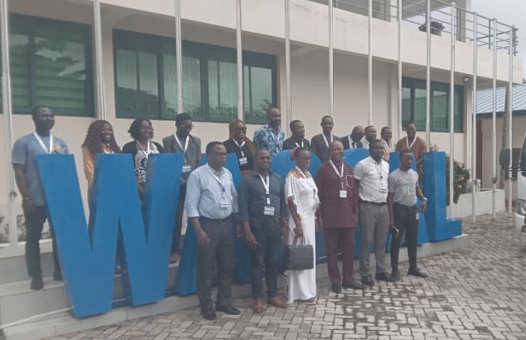By Deborah Asantewaah SARFO
MIGRAWARE has developed a mobile application to facilitate the collection of migration data. This swift step seeks to make migration data accessible and available, thereby bridging the migration data gap in the country.
In a dispensation where data remains key in decision-making and planning, the presence of migration data will help “identify the new trend in migration, factors driving it and emerging issues on migration”.
While admitting some migration information from the population census, the Scientific Coordinator of MIGRAWARE, Dr. Justice Nana Inkoom, emphasised that “it is not fully exhaustive”.
The announcement of the mobile app was made during a two-day project closeout event organised at WASCAL to share highlights of the MIGRAWARE project with experts in academia, international organisations and government agencies, among others.
The development of the app forms part of the outcomes of the Rural, Urban and Cross Border Migration in West Africa (MIGRAWARE) project, where 2,200 surveys were conducted across the four ecological zones of Ghana depicting areas that are hotspots for environmental, economic or cross-border drivers of migration.
He indicated that Ashaiman is an example of a cross-border migrant. Even though it is not situated across the border, many international migrants reside there.
The MIGRAWARE project seeks to propose an integrated assessment framework to identify core climate and environmentally induced migration drivers and processes and to propose sustainable responses within a rural-urban and cross-border context of West Africa.
To address the numerous challenges in the country, he emphasisied the need for collaboration between government and scientists, adding: “Science has a lot to offer and the government has a role to play”.
“The only way we can bridge some of the problems we have in our part of the world is when governments or the public sector can listen to scientists. It will be ideal for every public sector or institution like ministries to have research agencies; but they shouldn’t be performing or doing research in isolation”, he emphasised.
The workshop centred on a series of dialogue sessions to deliberate on current development and parallel efforts focusing on methods of researching migration and climate change, technological advancement for researching migration trends, recent migration policy and instruments and their challenges or opportunities aimed at managing migration, challenges and efforts of curbing negative migration effect in the country.
As part of the close-out event, attendees suggested some policy measures the government should put in place to mitigate the impacts of environmental drivers of migration: extend irrigation through engineered dams and pastures, enact deliberate policies to control pest infestation and demonstrate the political will to resolve environmental issues serving as pull and push factors, among others.
For his part, an Associate Professor at the University of Cape Coast (UCC) Prof. Samuel Agblorti, noted that while migration may have its challenges, the country has a competitive advantage in terms of human resources and hence must capitalise on that by “training the youth with skills to compete anywhere, and afterward establish collaborations with other countries” where a ready market exists for such skills.
The MIGRAWARE project, one of six project areas under the WASCAL Research Action Plan 2021 – 2024 (WRAP 2.0), was funded through the German Federal Ministry of Higher Education and Research (BMBF) and implemented within three years with a half-year extension.
The project traversed three countries: Ghana, Nigeria and Burkina Faso and was implemented by a multi-disciplinary team of fourteen partners made up of academic institutions, non-governmental organisations, civil society organisations and consulting agencies from the implementation countries and Germany.










